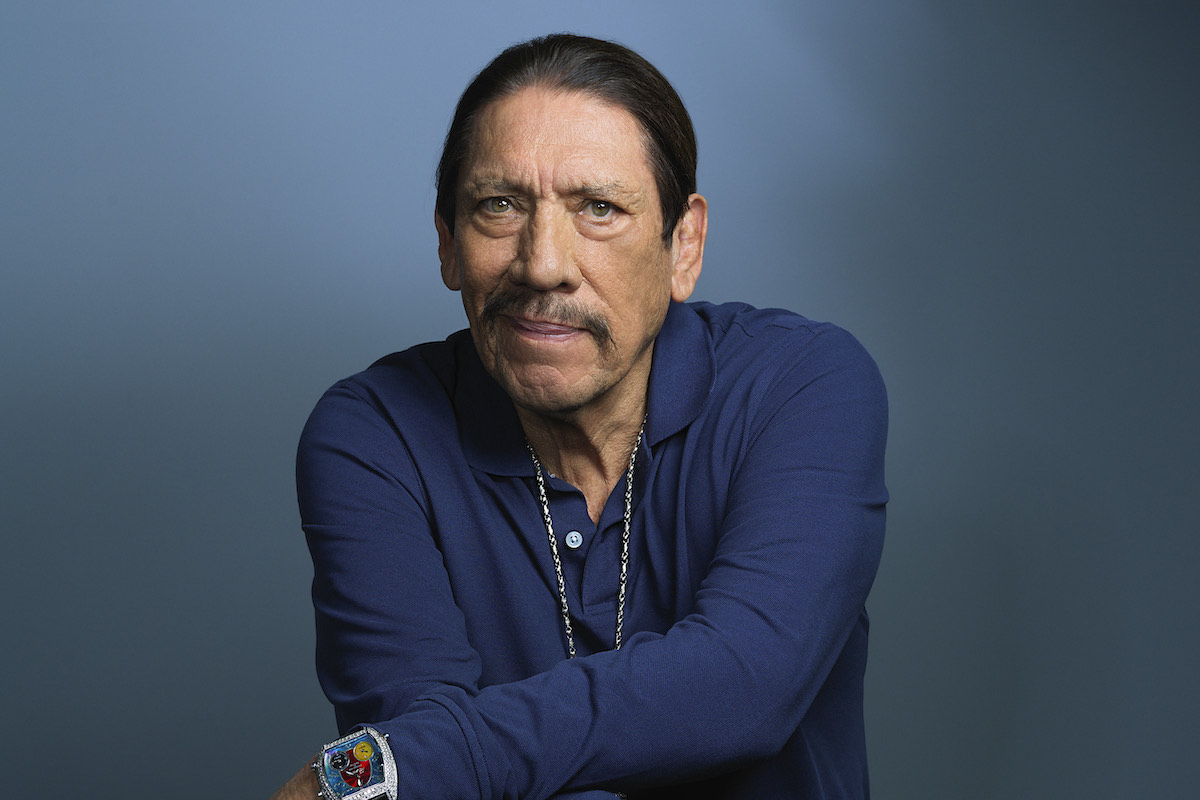With over 430 credits to his name, Hollywood’s biggest and baddest actor Danny Trejo has become the archetype of a tough guy on screen. His slick black ponytail, scarred face, and iconic handlebar mustache are unmistakable, his gruff voice, and larger-than-life persona has helped him land more ass-kicking, death-defying roles than any other Latino actor in American movie history.
Next week, Trejo will drop by UCSB for an Arts & Lectures/Department of Chicana and Chicano Studies event to discuss his long, troubled journey from a tough home in Los Angeles, through a life in crime and drug addiction, and finally to a long and storied career on the big screen, as described in his latest book, Trejo: My Life of Crime, Redemption, and Hollywood.
The book dives into his life before fame, when Trejo was a young boy growing up in a broken home in 1950s Los Angeles, where “machismo” culture was all he knew. Trejo was separated from his family early on in life when his father took him away from his mother. He was forced to grow up quickly, looking for love and attention anywhere he could find it.
“My grandmother and grandfather had 11 children — six boys and five girls — and the men ruled the world,” Trejo said. The men he grew up around were working class laborers, construction workers who he recalled as “sweaty, greasy, and angry.” The women, he said, were too exhausted from doing all the housework to give him the time of day. He remembers being ignored anytime he asked for anything from them.

But his Uncle Gilbert always dropped whatever he was doing to help. “All the other guys were always angry. Gilbert was the man, and he was always dressed sharp. But he happened to be a drug dealer and an armed robber.”
Trejo followed Gilbert into a new “cholo” lifestyle, and under his uncle’s wing, he felt at home, even if it was leading him into a life of crime. “Gilbert taught me how to act,” Trejo said. “If somebody gives you a dirty look, you give it back to them. So what if you get beat up? You proved yourself.”
His uncle eventually overdosed and passed away. In the early ’80s, after years of being in and out of jail and addicted to drugs, Trejo got clean. In 1985, he got his first role as an extra, making $50 to be in the background as “the tattooed guy.”
Soon, he was the go-to bad guy in Hollywood, acting alongside Robert De Niro, Antonio Banderas, and Nicolas Cage, and working with legendary directors like Robert Rodriguez and Quentin Tarantino.
He also expanded his personal philosophy about intergenerational trauma, masculinity, and fatherhood. In his book, he describes the way he approaches his relationships with his children in contrast to his experiences with his father.
“Everything that my dad did, I did the opposite,” he said. Trejo describes that in the ’50s it “wasn’t fitting” for a father and his kids to openly say “I love you,” but that with his own children, he makes sure that they know how he feels every day.
He uses his fame to speak out on drug addiction and recovery, often visiting juvenile halls or recovery centers to share his story.
“I’m really proud of being able to help. I think the platform that the good Lord has given us with this movie stuff is unbelievable,” Trejo said. “I wish more actors will get involved. We can make a difference.”
Danny Trejo speaks at Campbell Hall at 7:30 p.m. on April 12. For more information, visit artsandlectures.ucsb.edu.





You must be logged in to post a comment.